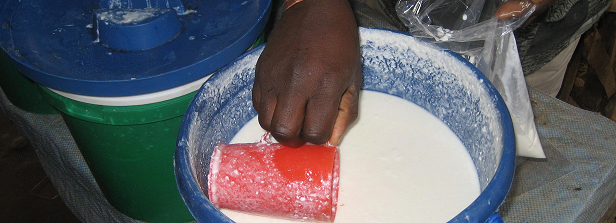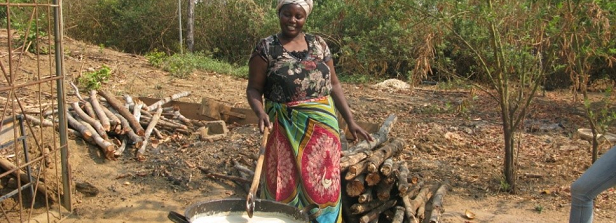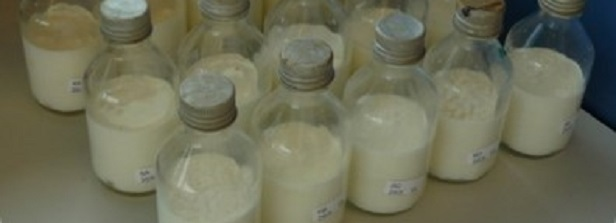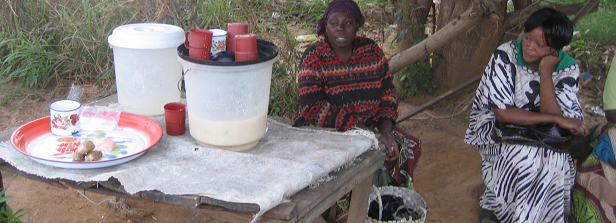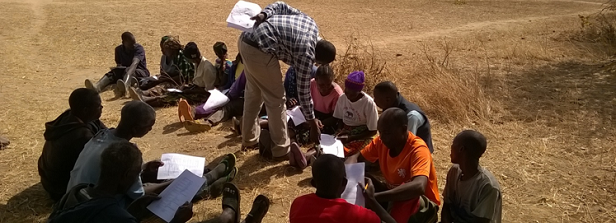Zambian traditional fermented foods
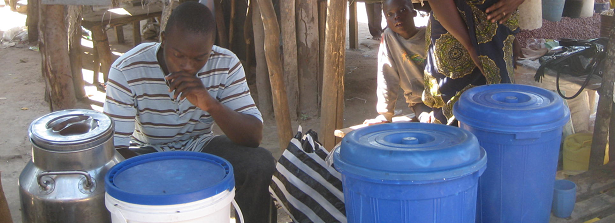
Duration: January 01, 2015 – September 30, 2019
Project information
Aim: Local fermented foods are nutritious and safe and are part of Zambian and African culture. Their potential to promote development is currently neglected. This project will optimize the entire value chain of these products from local (female) producers to consumers. As such it will enhance and increase the availability of cereal-based fermented products.
Objective: Better health and nutrition; increased income for local people.
Method: Defining best practices to improve food production-consumption chains and better address the demand of rural and urban consumers.
Country: Zambia.
Dutch policy goals: Increase sustainable food production; Improved access to nutrition; and Efficient markets.
Progress reports
Year 1: The past year 2015 was the start-up year of our project. We recruited and hired four PhD candidates who started their PhD trajectory by drafting a detailed research plan for their specific PhD projects within the frame of our project The original project envisioned three PhD projects, with additional outside funding we managed to add a fourth.
As a pilot for the research and to fine tune research questions and procedures, several experiments were conducted, both in the laboratory and in the field. These experiments gave insight in the microbial composition of several traditional fermented products in Zambia. Further, both short and longer term field visits gave insight in the current processing practice of products.
In the past year, local producers in rural villages were actively engaged in the fine-tuning of research questions and the planning of the research to ensure that the project will not only yield results that are of scientific interest, but also meaningful for local people in their effort to scale-up and professionalise the production of traditional fermented products in Zambia. With this, we aim to help promote nutrition security by optimising the entire food value chain of local traditional fermented products.
In the upcoming year 2016, the PhD candidates will start/continue their actual research on the ground by establishing the current processing practice in detail and what the consequences are of variations in this practice for microbial product stability, taste and nutritional value. This will lead to leads on how an optimal processing practice could look like. In the beginning of 2016, we will have a start workshop with stakeholders from NGOs, government, private enterprise and others, as well as field visits and an academic symposium to inform and get feedback of various stakeholders on the details of our planned research.
Summary mid-term review: By optimizing traditional fermented foods, we aim to improve the food chain between consumption and production and increase production and nutritional value. We specifically focus on two traditional fermented foods from Zambia: Mabisi (milk-based) and Munkoyo (cereal-based). Fermented foods rely on the activity of micro-organisms to transfer a raw material into a product with enhanced properties. We started by characterizing the current variations in production process among producers. We found that for both products variations exist that give rise to slightly different products. By intensively monitoring selected fermentations, we have made a first characterization of the types of microbes present. Finally, we quantified the nutritional content of the products and surveyed the current diet of people in rural areas. We found that especially Mabisi can contribute to optimizing the diet. Next steps are to optimize current processing practice, the define what combinations of microbes yield the best products and to assess how the consumption of our products can improve nutritional status during field trials. In our project, we work with local stakeholder organizations which has greatly helped to focus our scientific research and to ensure ownership of local producers. This will allow for effective dissemination of results.
Year 3: In the project on traditional fermented foods in Zambia, we focus on two types of products (Mabisi based on milk and Munkoyo based on cereal) that are important traditional foods that are part of local culture yet not formally described. We found that for both products, various methods of production exist, especially for the milk based product. The production method is specific for ethnic groups in rural areas, our next step is to ask urban consumers on their preference. We further are profiling the products for their microbial composition asking what factors shape these communities and what makes them stable of time and to withstand invasion by pathogenic bacteria. This has implications for the starter cultures (defined mixes of bacteria) for standardized products. To facilitate standardized products, we are currently performing a formal hazard analysis on the production procedures in consultation with the Zambia Bureau of Standards.

